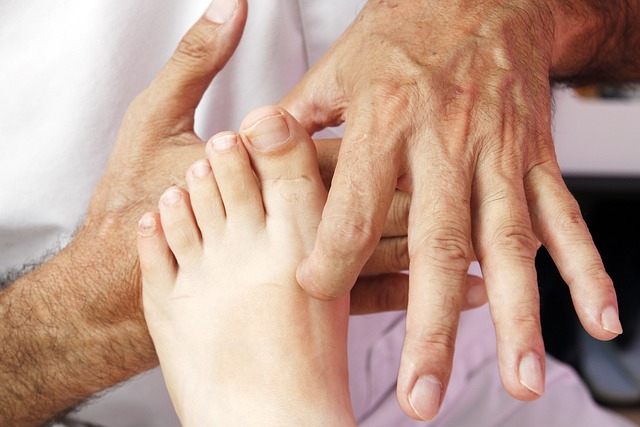Student life can be stressful, with various factors contributing to anxiety. Stress relief therapy offers a holistic approach, focusing on identifying and addressing root causes. Techniques such as mindfulness meditation, CBT, progressive muscle relaxation, exercise, and effective time management empower students to manage their mental health. These strategies foster resilience, improve emotional balance, enhance academic performance, and promote a healthier lifestyle. Social connections and relaxation techniques are also vital for stress mitigation, providing support networks and mental clarity. By integrating these stress relief therapies, students can navigate academic pressures with increased confidence and well-being.
Student life can be demanding, leading to overwhelming stress. This article provides a comprehensive guide to managing stress through various effective strategies. We explore the root causes and triggers of student stress, offering insights for better well-being. Discover the power of mindfulness techniques, the benefits of exercise as a natural stress reliever, and learn about evidence-based approaches like Cognitive Behavioral Therapy (CBT). Additionally, we cover time management, social support, relaxation methods, and more, empowering students to find their optimal balance and alleviate stress with tailored therapy solutions.
Understanding Student Stress: Causes and Common Triggers

Student life can be a rollercoaster of emotions, and stress is an all-too-common companion for many. Understanding what causes this stress is the first step towards managing it effectively. Stress among students often stems from various sources, such as academic pressure, exams, heavy workloads, financial concerns, social expectations, and personal issues. These triggers can create a perfect storm of anxiety and overwhelm, impacting their mental health and overall well-being.
One effective way to cope with student stress is through stress relief therapy. This approach focuses on identifying the root causes of stress and providing tools to manage it. Techniques like mindfulness meditation, deep breathing exercises, cognitive-behavioural therapy (CBT), and progressive muscle relaxation can empower students to take control of their mental state. By learning these skills, students can navigate their academic journey with greater resilience, ensuring a healthier balance between their studies and personal lives.
The Power of Mindfulness: Techniques for Daily Practice

Mindfulness is a powerful tool in the arsenal against student stress. By focusing on the present moment and cultivating awareness, students can learn to disengage from anxious thoughts and reduce the impact of stressful situations. Techniques such as meditation, deep breathing exercises, and mindful walking can be easily incorporated into daily routines. These practices help to calm the mind, lower heart rate, and promote a sense of equilibrium.
Regular mindfulness practice offers long-lasting benefits for stress relief therapy. It enables students to develop a deeper understanding of their emotional responses, fostering resilience in the face of academic pressures. Incorporating even brief moments of mindfulness throughout the day can significantly contribute to improved mental well-being and enhanced overall performance.
Exercise as a Stress Reliever: Incorporating Physical Activity

Exercise is a powerful tool in the arsenal against student stress. Physical activity acts as an effective stress relief therapy, offering more than just improved fitness. When students engage in regular exercise, their bodies release endorphins, often referred to as ‘feel-good’ hormones, which can significantly boost mood and reduce feelings of anxiety and depression. This natural response contributes to a clearer mind and a renewed sense of well-being.
Incorporating physical activity into daily routines can take various forms, from joining sports teams or fitness classes to simply taking brisk walks during breaks. Even short bursts of exercise can make a difference. Students should explore different activities to find what works best for them, ensuring they engage in practices they enjoy. This personalized approach will encourage consistency, making stress relief a sustainable habit.
Cognitive Behavioral Therapy (CBT): Shaping Positive Thinking

Cognitive Behavioral Therapy (CBT) is a highly effective stress relief therapy that focuses on identifying and changing negative thought patterns and behaviors. By challenging distorted thinking, CBT empowers students to develop healthier, more positive perspectives, which in turn reduces their stress levels. This evidence-based approach teaches practical coping strategies, helping individuals manage their emotions and reactions to stressful situations more effectively.
Through CBT, students can learn to recognize unhelpful cognitive distortions like all-or-nothing thinking or catastrophizing, and replace them with more realistic and balanced thoughts. This process enables them to develop a sense of control over their emotional responses, leading to improved resilience and better stress management in academic settings and beyond.
Time Management Strategies for Less Overload

Effective time management is a powerful tool in the arsenal against student stress. With structured planning, students can allocate their time efficiently, reducing the overwhelming feeling that often leads to stress and anxiety. One strategy involves breaking down tasks into manageable chunks, setting realistic deadlines, and prioritizing based on importance and urgency. Using tools like planners or digital calendars to schedule study sessions, assignments, and extracurricular activities can provide a clear overview of commitments, allowing for better organization.
Additionally, learning to say no to non-essential activities is crucial. Students should identify their primary goals and focus on tasks that directly contribute to them, avoiding time-consuming distractions. By implementing these time management strategies, students can achieve a sense of control, alleviate stress relief therapy needs, and improve overall academic performance.
Social Connections and Support Networks for Better Mental Health

Social connections play a vital role in managing student stress and enhancing mental well-being. Building and maintaining strong support networks can provide a sense of belonging, boost resilience, and offer valuable perspectives on challenges. Students should cultivate relationships with peers, teachers, and mentors who can serve as reliable sources of encouragement and guidance. Group studies, club activities, and community events are excellent opportunities to foster these connections. Peer support groups and counseling services at educational institutions also facilitate open discussions and provide specialized stress relief therapy for students navigating academic pressures.
Having a robust social support system allows students to share their feelings, seek advice, and gain different viewpoints on stressful situations. These interactions can reduce feelings of isolation and provide alternative solutions to problems. Moreover, engaging in social activities and shared experiences can divert attention from stressors, offering much-needed breaks from academic demands. Incorporating social connections into one’s routine is a powerful strategy for managing stress and promoting overall mental health.
Integrating Relaxation Techniques into Everyday Life

Incorporating relaxation techniques into your daily routine can be a powerful tool for students seeking stress relief therapy. Simple practices like mindfulness meditation, deep breathing exercises, and progressive muscle relaxation take just a few minutes but offer significant benefits in managing exam anxiety, deadline pressure, and overall academic stress. These methods help individuals become more aware of their thoughts and feelings, promoting a sense of calm and clarity that enhances focus and productivity.
Regularly engaging in these stress relief therapies allows students to develop resilience against the rigors of academic life. By making relaxation an integral part of their day, they can better navigate challenging situations, maintain a positive mindset, and uphold their overall well-being—all essential factors for academic success.
